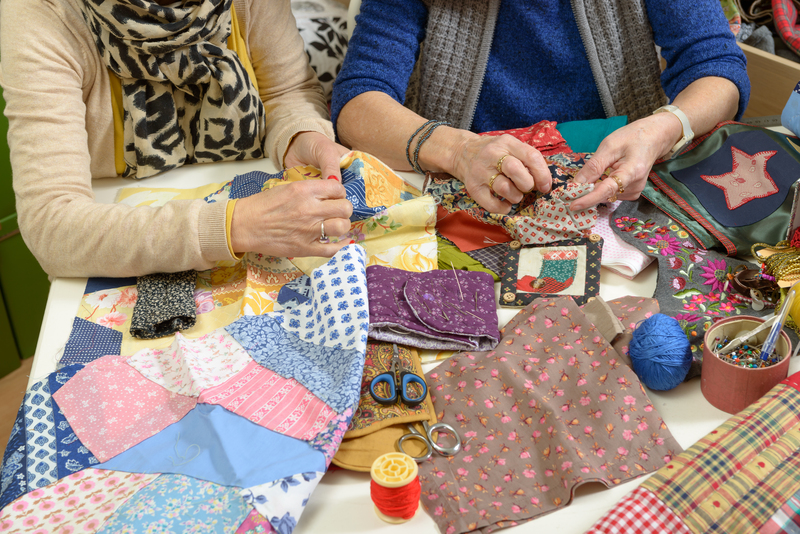Becoming Eco-Friendly on a Budget
Posted on 09/10/2025
Becoming Eco-Friendly on a Budget
With rising environmental concerns, many people are striving to make more eco-friendly choices. However, a common misconception is that sustainable living is expensive. The truth is, you can make a significant impact without breaking the bank. This article will guide you on how to become eco-friendly on a budget, providing practical tips and insights.
Why Go Green?
Before diving into the how, it's essential to understand the why. Adopting an eco-friendly lifestyle helps reduce pollution, conserve resources, and even improve your health. Moreover, many green choices can save you money in the long run, making it a win-win situation.

Reduce, Reuse, Recycle
The cornerstone of eco-friendly living is the three R's: Reduce, Reuse, and Recycle. Here's how you can incorporate each of them into your daily life without spending much:
- Reduce: Buy only what you need. Cutting down on unnecessary purchases not only saves money but also minimizes waste.
- Reuse: Opt for reusable items like water bottles, shopping bags, and containers.
- Recycle: Make sure to recycle paper, plastic, glass, and metal where facilities exist.
Energy Efficiency at Home
Reducing energy consumption is one of the most impactful ways to live sustainably. Here are some budget-friendly ways to make your home more energy-efficient:
- LED Bulbs: These consume less power and last longer than traditional bulbs.
- Unplug Devices: Electronics consume power even when turned off. Unplugging them can significantly cut your energy bill.
- Thermostat Management: Adjust your thermostat a few degrees lower in winter and higher in summer to save on heating and cooling costs.
Eco-Friendly Transportation
Your daily commute can be greener and cheaper:
- Public Transport: Using buses, trains, or carpooling can reduce your carbon footprint and save money.
- Cycling or Walking: These are the greenest and healthiest transportation options.
- Maintain Your Vehicle: Regular maintenance can improve fuel efficiency and reduce emissions.
Sustainable Food Choices
Your diet plays a crucial role in your environmental impact:
- Buy Local: Support local farmers and reduce the carbon footprint of transporting goods.
- Seasonal Produce: Seasonal fruits and vegetables are often cheaper and require less energy to produce.
- Reduce Meat Consumption: Even occasional vegetarian meals can make a difference.
Thrifty Shopping
Sustainable fashion doesn't have to be expensive:
- Thrift Stores: Buying second-hand clothes reduces waste and saves money.
- DIY: Upcycle old clothes or household items to give them a new life.
- Quality Over Quantity: Invest in durable items that will last longer.
Pros and Cons
Like any lifestyle change, becoming eco-friendly on a budget has its advantages and disadvantages:
Pros:
- Cost Savings: Many eco-friendly choices can save you money, such as reduced energy bills and fewer purchases.
- Environmental Impact: You'll contribute to a healthier planet.
- Health Benefits: Many eco-friendly practices also promote better health.
Cons:
- Time-Consuming: Some eco-friendly practices, like DIY projects, can be time-consuming.
- Initial Costs: Certain items, like LED bulbs, may have a higher upfront cost, although they save money in the long run.
- Availability: Eco-friendly products may not always be readily available, depending on your location.
Tips for Success
Here are some tips to help you stay on track:
- Start Small: Don't try to change everything at once. Start with simple changes and gradually add more.
- Educate Yourself: Stay informed about eco-friendly practices and products.
- Get Involved: Join local environmental groups or online communities for support and inspiration.

Takeaways
Becoming eco-friendly on a budget is achievable with a bit of effort and planning:
- Understand the importance of going green.
- Implement the three R's: Reduce, Reuse, Recycle.
- Make energy-efficient choices at home.
- Opt for eco-friendly transportation.
- Choose sustainable food options.
- Shop wisely, prioritizing quality over quantity.
Conclusion
Living sustainably doesn't have to be costly. By making informed, budget-friendly choices, you can contribute to a healthier planet while also saving money. Remember, even small changes can make a big difference. So start today and take the first step towards a more sustainable future.
Latest Posts
Recycling for Environment Health
Start Your Plastic-Free Kitchen Journey
Recycling Polystyrene for a Greener Earth






